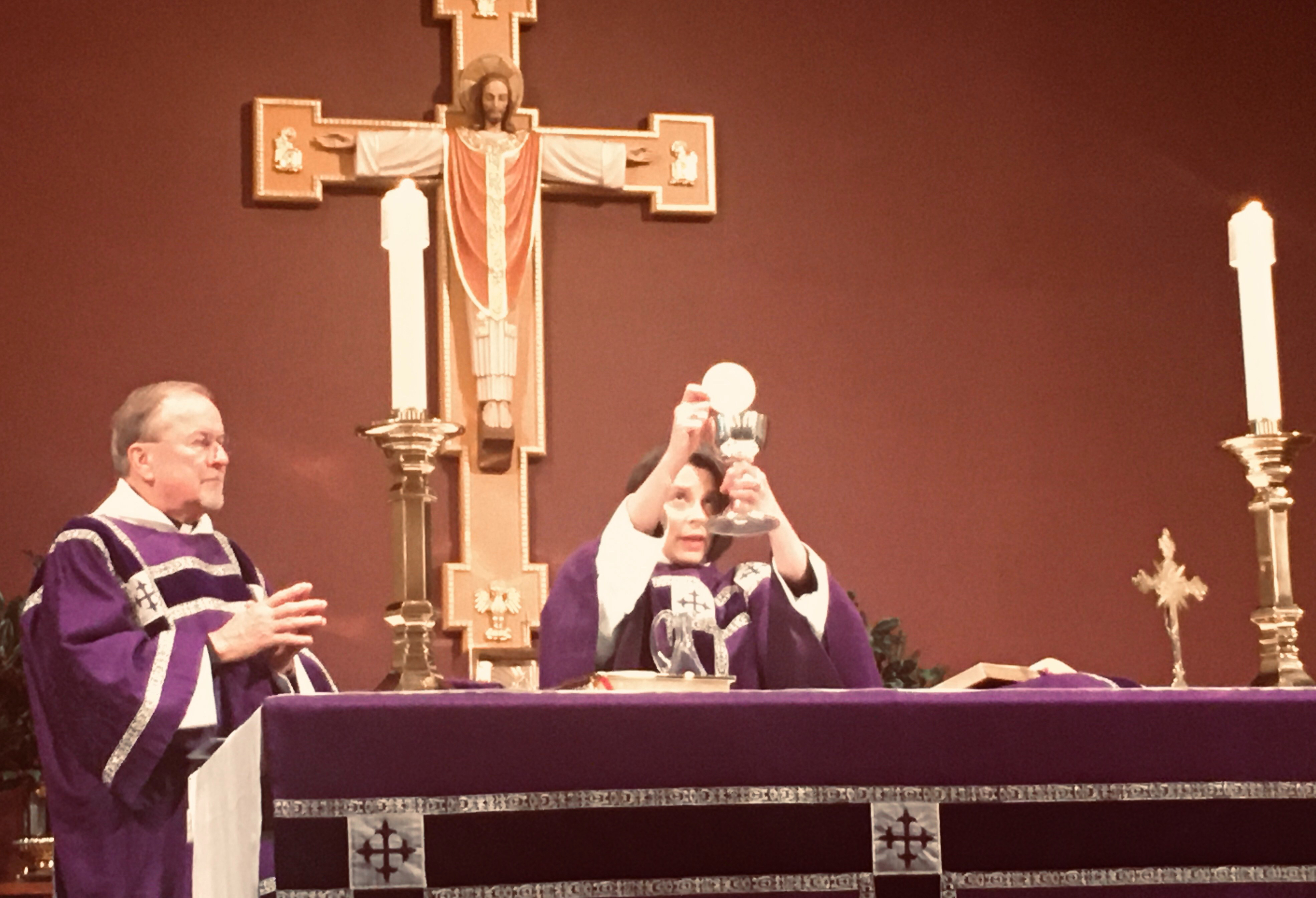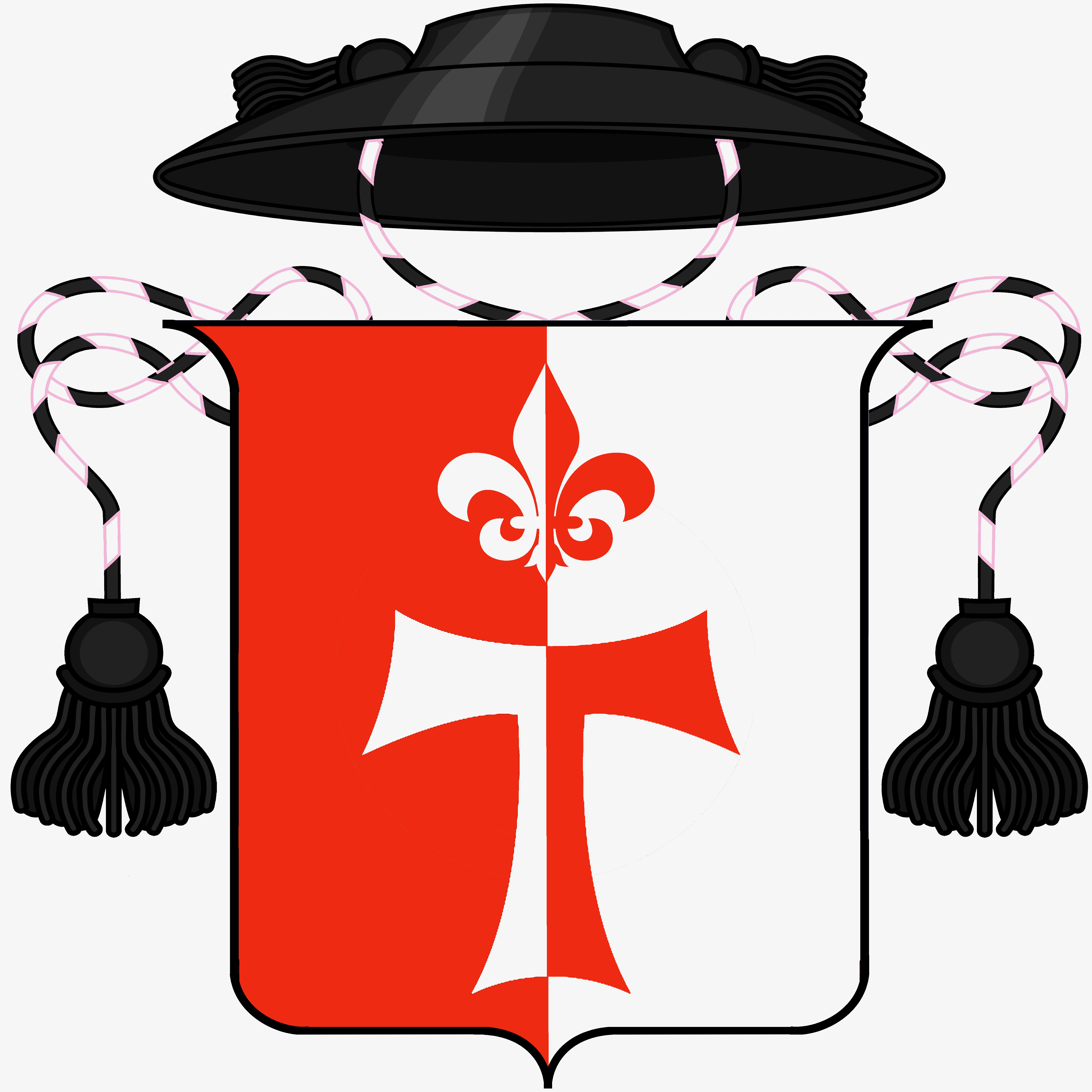Recently someone asked me why we had a statue of Mary prominently displayed in the church. (This person didn’t seem to be super happy about it.) My immediate answer to this person included the practical reason: at some point during the pandemic, the parish had celebrated a feast or something to do with Mary, and we’d needed a larger statue. The rector of the Anglo-Catholic parish where I regularly serve had purchased a bigger one so it would “show up” on camera. The only other statue of Mary that the parish owned was barely a foot high. Even though most people had transitioned back to in-person worship, the larger statue now remained, placed where everyone could see her each Sunday. To be honest, I’d not given this new statue of Mary much thought, and I essentially communicated this to the person who seemed to be so worried about the Mary statue. Part of being an Anglo-Catholic parish, I explained, meant an emphasis on the more “Catholic” parts about Anglicanism. So this often manifested itself in special devotion to Mary, emphasis on the Sacraments, and often more intense ceremonial (beautiful vestments, incense, bells, etc.). Knowing that many historically Anglo-Catholic parishes have a statue of Mary somewhere around (and many times much, much bigger than the one we had recently acquired), I wondered what this person would think about a life-sized version of her.
But being raised evangelical Protestant, I knew exactly why this person was asking. As a child growing up in church, I was pretty much told Mary wasn’t all that important, other than the fact that she just so happened to be Jesus’s mother. As a child, I can remember the importance of Mary being diminished by the adults in my life. “She was just a person,” someone flatly stated to me. The well-meaning adult went on, “Some people treat Mary as though she is God. They basically worship her and put her on equal footing with Jesus. They even pray to her like she’s God, and that’s wrong!” As a child, I didn’t really understand at first why I was being told this—or why any person could know that Mary was indeed “just a person” but then go on to worship her. I remember thinking, “Of course, she’s a person. But she had to be a really, really special person, right?” But it was one of those situations where, even as a child, I knew this was something I wasn’t supposed to ask about or question.
So I didn’t outwardly question it. I knew better. Doing something dumb like that in evangelical circles only resulted in people praying for your salvation. Or looking askance at you during church. And people talking about you in hushed tones behind your back. Even though adults in my evangelical upbringing disparaged overly-enthusiastic interest in Mary, even to the point of questioning the frequency of her visual representations in churches (Tsk! Why do they have to have so many statues of her?), I privately wondered what all the fuss was about. And secretly really liked all the statues and icons of her, even though I knew I wasn’t supposed to like them and felt vaguely guilty about it. I nursed my questions secretly and wondered about this strange and more visually-oriented version of Christianity. I worried, sometimes, if it were idolatry because I liked statues of Mary so much. I mused privately to myself . . . Why did Mary make people, at least the people who went to the churches I went to, so upset?
I didn’t really have to face Mary head on until college. At my very conservative, denominational college, I started dating the only Catholic boy living on campus. I could write a whole blog post on how that was one big disorienting dilemma, but one facet of that was Mary. I finally figured out why Protestants had so much trouble with her. And I had to reconcile what I had been told with what another person very passionately (and very oppositely) believed. As the only and extremely unapologetic Catholic on campus, my at-the-time boyfriend made it his mission in life to defend Catholicism against any Protestant who sought to take him on, producing some really interesting conversations. And because I had someone with whom I could safely engage and ask all the things I’d been dying to ask, I finally had all of my questions answered.
Specific conversations and minute details are fuzzy all these years later, but I remember getting into long discussions about Mary and how important she was to Roman Catholics. According to Catholic teaching, Tom told me, Mary did not die a normal death. She was assumed into heaven. Yes, she was Immaculate—she had to be born without sin because she was Jesus’s mother! She is the New Eve and is given the title “Mother of God” because, if we believe Jesus is God, then that title is appropriate for her. She remained a virgin throughout her life. And yes, of course she prays for us. She is so close to Jesus, and she loves Him, so why would she not want to pray for us? And would her prayers not be more efficacious than many others, because she’s right there in heaven with him, and because she’s the one human who was closest to him and loved him the most?
I have to say I really struggled with all of this and pushed back quite a bit. I wasn’t ready to sign on to these extra beliefs about someone who I’d been taught all my life was “just a regular person.” I wasn’t ready to believe anything close to that, I told myself, even as all of these things most certainly piqued my interest. All of these “extras” were giving Mary just a little too much attention and importance for my comfort level. What if you put too much emphasis on her, and she became more important than Jesus? Although I respected Tom and his beliefs a great deal, and he was definitely very enthusiastic about them, I knew I could not sign on to them at the time. Eschewing Roman Catholicism, I continued my search for a church home until I found the Episcopal Church. I rejoiced to find a church where the essentials of orthodoxy were embraced and taught (the Nicene Creed) but where other beliefs, like those about Mary, were up to the individual believer. Unlike Catholicism, belonging to the Episcopal Church, I didn’t have to sign on to believing anything about Mary I didn’t want to. And so, I thought that was probably the end of it. I was done with Mary at that point.
But Mary wasn’t done with me. So many years later, when I started attending a little parish that not only prayed the Rosary, but also had a shrine to her in the back of the nave, I was intrigued and resumed my quest to figure out what I believed about her. Thankfully, the rector at the time was supportive. He encouraged devotion to Mary. We frequently prayed the Angelus at her shrine in the back of the church. I started (tentatively) praying the Rosary. I read voraciously everything I could get my hands on about Mary. And slowly, my heart warmed to her. It helped immensely that I was able also to read the historical context in which many Marian doctrines developed — to read that a high regard for Mary was evident starting with the Church Fathers and going right up to Martin Luther. I was shocked to find out that many of the doctrines that I had been led to believe were fairly recent innovations (Read: Stuff Catholics Made Up and that’s why we had the Reformation) are actually teachings that had roots very early in the history of Christianity, even if they weren’t made official dogmas until much later.
Slowly, I started opening my mind and heart to Mary. I started asking her to pray for me (and truly, for a long time I felt like a child doing something naughty when I did this). Nevertheless, I did it anyway. My attraction to her love of Jesus, to her unfailing courage, bravery, obedience, and to her spirituality quickly overcame my awkwardness. I memorized the Hail Mary in English and Latin, which was easy, because as a professional soprano I had been singing it in Latin and German for years. I found that in times of anxiety and stress, that became my go-to prayer. I started praying the Rosary. Instead of questioning many of the traditional Marian doctrines, I respectfully considered them in the context of what I knew of scripture and tradition. There was just something really comforting about knowing that there was a human woman who could relate to me but who could also be a powerful intercessor at the same time.
And maybe that’s not where you are, and that’s OK, too. But before you dismiss what I’ve said, or before you dismiss Marian devotion as a bunch of unnecessary Anglo-Catholic (or Roman Catholic) overkill, do a little research. Pray about it. Realize that there is a long tradition of Marian devotion. Examine each doctrine for yourself in the context of history and Scripture. The Episcopal Dictionary of the Church states: “Early in church history she was honored and esteemed. Irenaeus called her the New Eve, Athanasius taught her perpetual virginity, and the Council of Ephesus in 431 declared her Theotokos, Mother of God, because of the hypostatic union of divinity and humanity in the one person Jesus Christ. Anglicanism has not generally accepted beliefs concerning Mary’s perpetual virginity or bodily assumption to heaven after her death, but some hold these views as pious opinions.” *
Devotion to Mary isn’t something that was invented yesterday or without careful thought. Many revered greats of the church practiced regular Marian devotion! And there’s this: I am convinced that my love of Mary has increased my love of her Son. Loving Mary isn’t an end unto itself! It finds its ultimate culmination in a high Christology, in faithfulness, love, and devotion to the Son of God, Jesus Christ. Mary’s goal is not glory of herself, but the glory and worship of her Son. Saint Maximilian Mary Kolbe famously said, “Never be afraid of loving the Blessed Virgin too much. You can never love her more than Jesus did.”
*The Episcopal Church. “An Episcopal Dictionary of the Church: Mary the Virgin, Mother of Our Lord Jesus Christ, Saint.” Last modified 2021. Accessed June 5, 2021. https://www.episcopalchurch.org/glossary/mary-the-virgin-mother-of-our-lord-jesus-christ-saint/.












 My most frequently asked question since being ordained a priest, much to my surprise, has been, “What do we call you?” After telling people that I want to be addressed as “Mother Melanie,” I don’t always get the response I expected. In fact, the response (with varying hints of emotion, confusion, exasperation, and even pushback) is something along the lines of, “Why do you want us to call you that? Our other priest was a woman, and she always asked us to call her (fill in the blank with a variety of terms: Pastor, Chaplain, Reverend, etc.—or just a first name). OR, “Wait . . . isn’t Mother the title of address for a nun?” Please note that none of these people seemed to question why we called the male priest “Father.”
My most frequently asked question since being ordained a priest, much to my surprise, has been, “What do we call you?” After telling people that I want to be addressed as “Mother Melanie,” I don’t always get the response I expected. In fact, the response (with varying hints of emotion, confusion, exasperation, and even pushback) is something along the lines of, “Why do you want us to call you that? Our other priest was a woman, and she always asked us to call her (fill in the blank with a variety of terms: Pastor, Chaplain, Reverend, etc.—or just a first name). OR, “Wait . . . isn’t Mother the title of address for a nun?” Please note that none of these people seemed to question why we called the male priest “Father.”